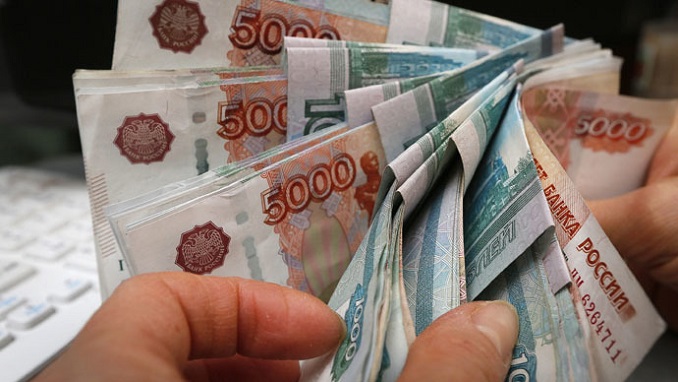Russia’s central bank raised its key interest rate to 5% on Friday, a bigger than expected jump against the background of a weak ruble, high inflation and geopolitical risks, signalling that more rate hikes would follow, Reuters reports.
The decision to raise the rate from 4.5% was at odds with the majority of analysts polled by Reuters, who predicted a moderate 25-basis-point increase after a new wave of sanctions hit the ruble and inflation showed little signs of slowing.
“The rapid recovery of demand and elevated inflationary pressure call for an earlier return to neutral monetary policy,” the bank said in a statement.
The central bank raised the rate for the second time this year as inflation, its main area of responsibility, accelerated to 5.8% in March, its highest since 2016.
The central bank said inflation will be in the range of 4.7–5.2% as of the end of 2021, returning to its 4% target only in the middle of 2022, later than previously expected.
“The Bank of Russia will consider the necessity of further increases in the key rate at its upcoming meetings,” it said.
The bank will consider raising the cost of lending further after slashing the key rate to a record low of 4.25% in 2020 when the economy took a hit from a plunge in prices for oil, Russia’s main export. The coronavirus pandemic has also buffeted the economy, which is on track to recover this year.
Lower rates support the economy through cheaper lending but can also fan inflation and make the ruble more vulnerable to external shocks.
The Russian currency fell this month, decoupling from moves in other emerging markets as well as in the price of crude oil, as it was hammered by fears of U.S. sanctions and Russia’s military buildup near Ukraine.
Relations with the United States and Europe worsened significantly this month with sanctions and diplomatic expulsions, but tensions over Ukraine have eased significantly in the last two days with a pullback of Russian forces from near the border.
The ruble extended recent gains after the rate move, hitting 74.76 against the U.S. dollar versus levels of around 75 seen before the announcement.
Elvira Nabiullina, governor of the central bank, will shed more light on the central bank’s forecasts and monetary policy plans at an online news conference at 1200 GMT.
The next rate-setting meeting is scheduled for June 11.












